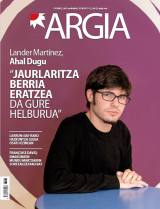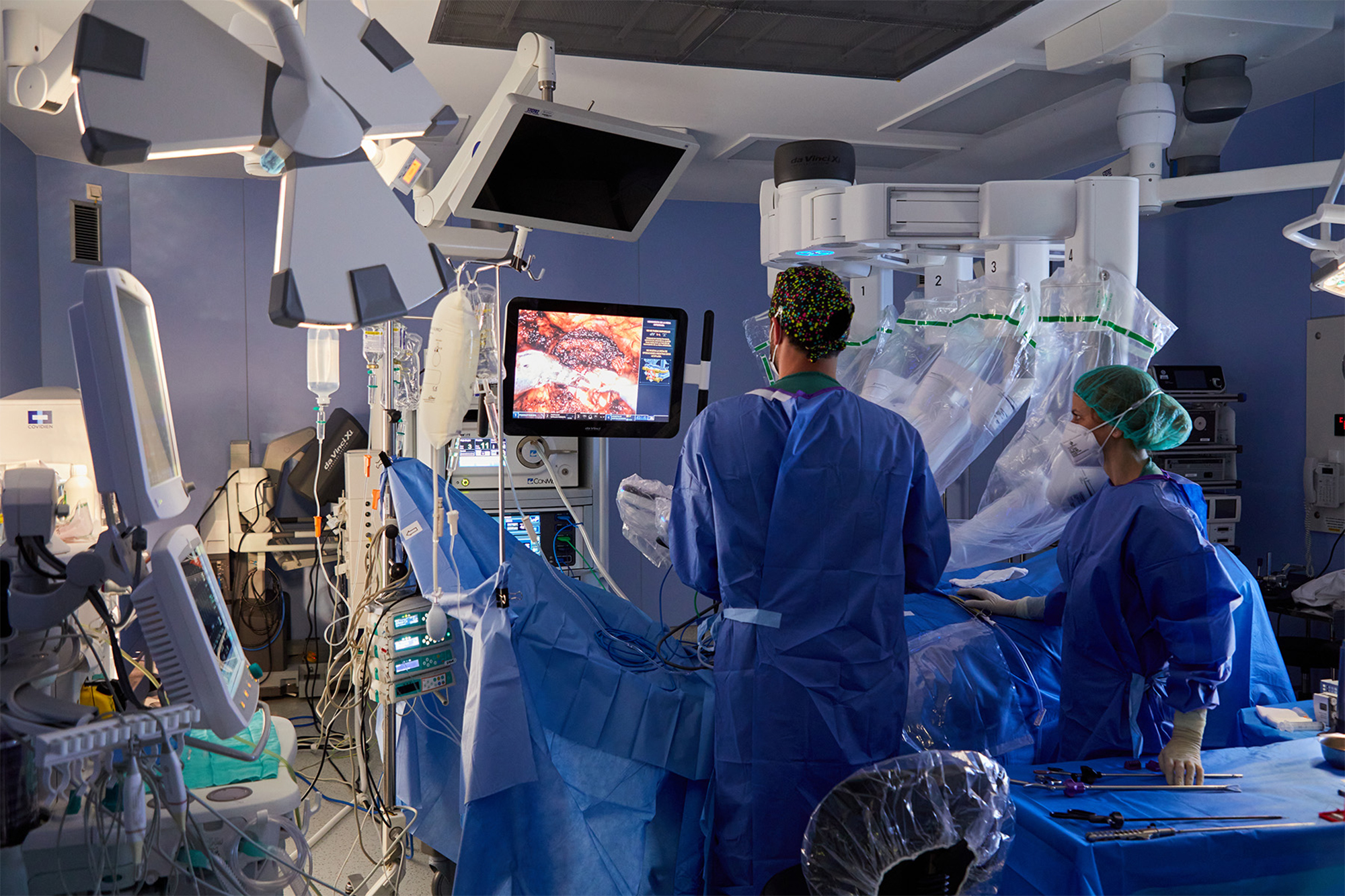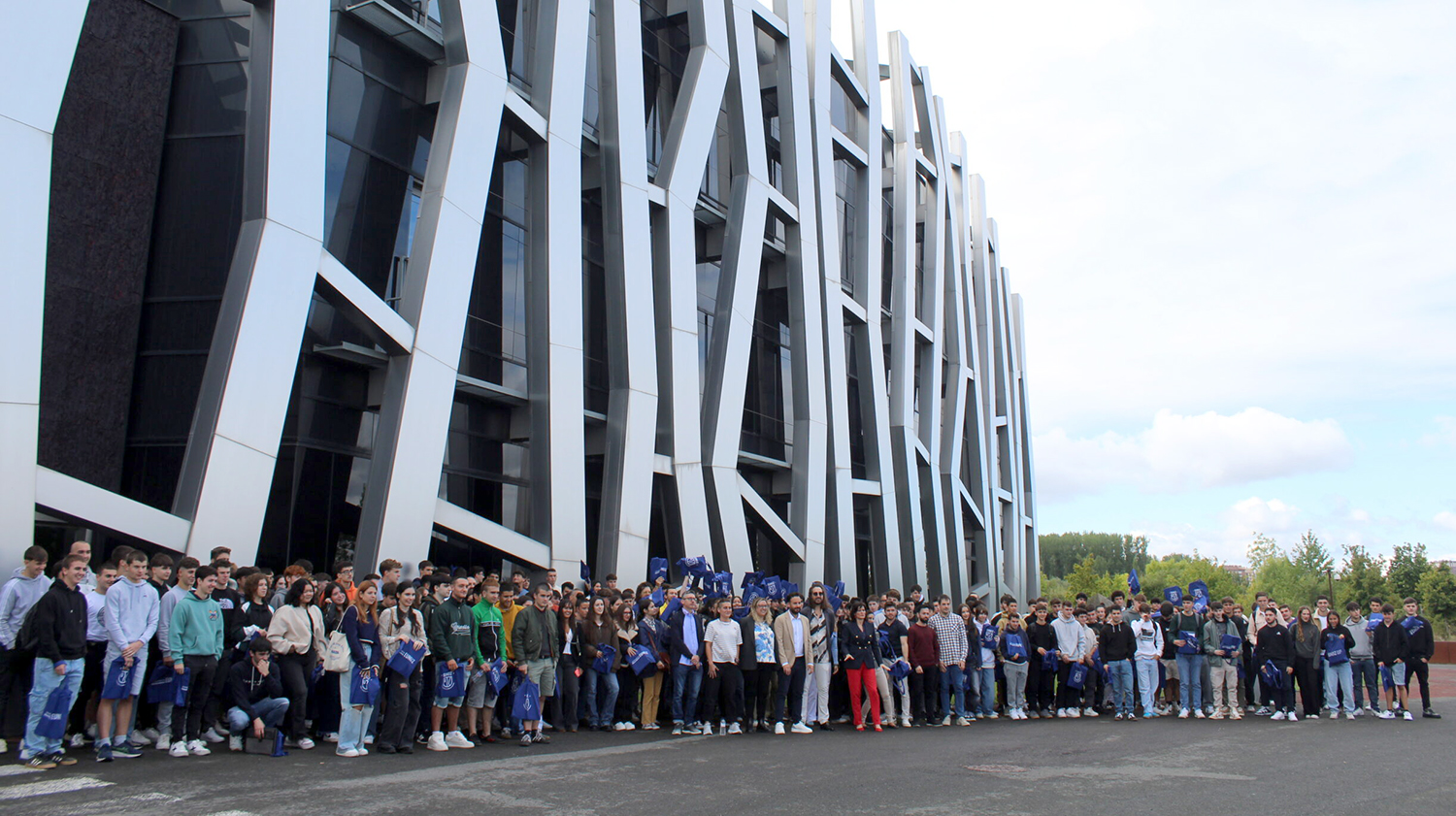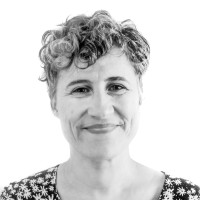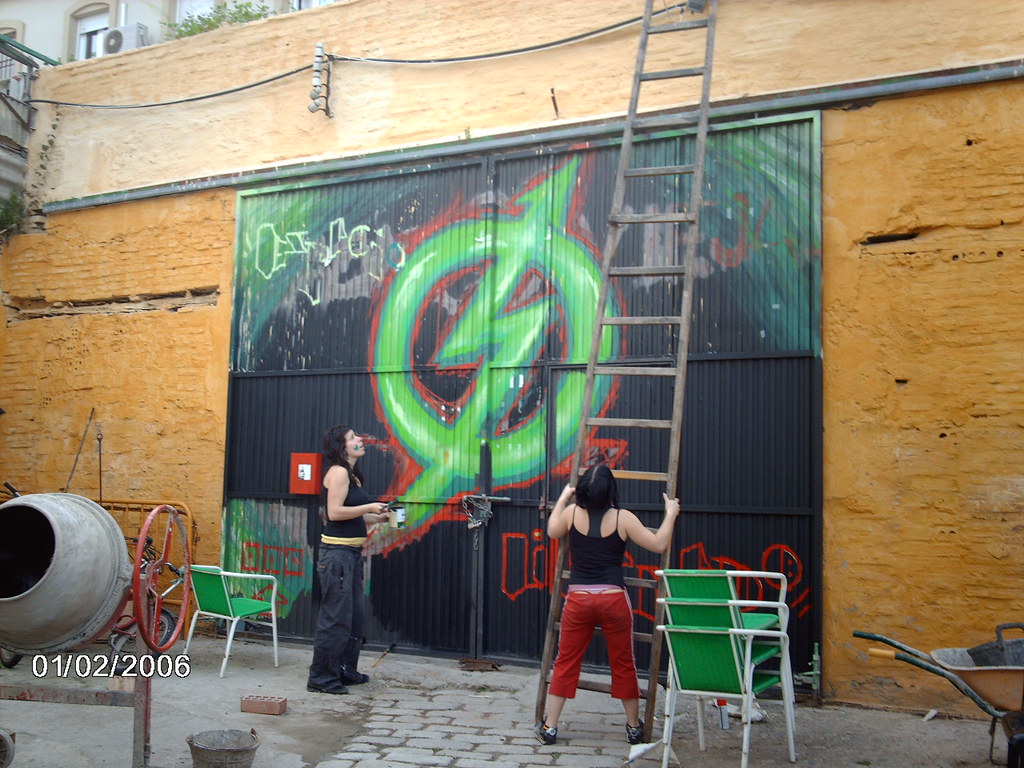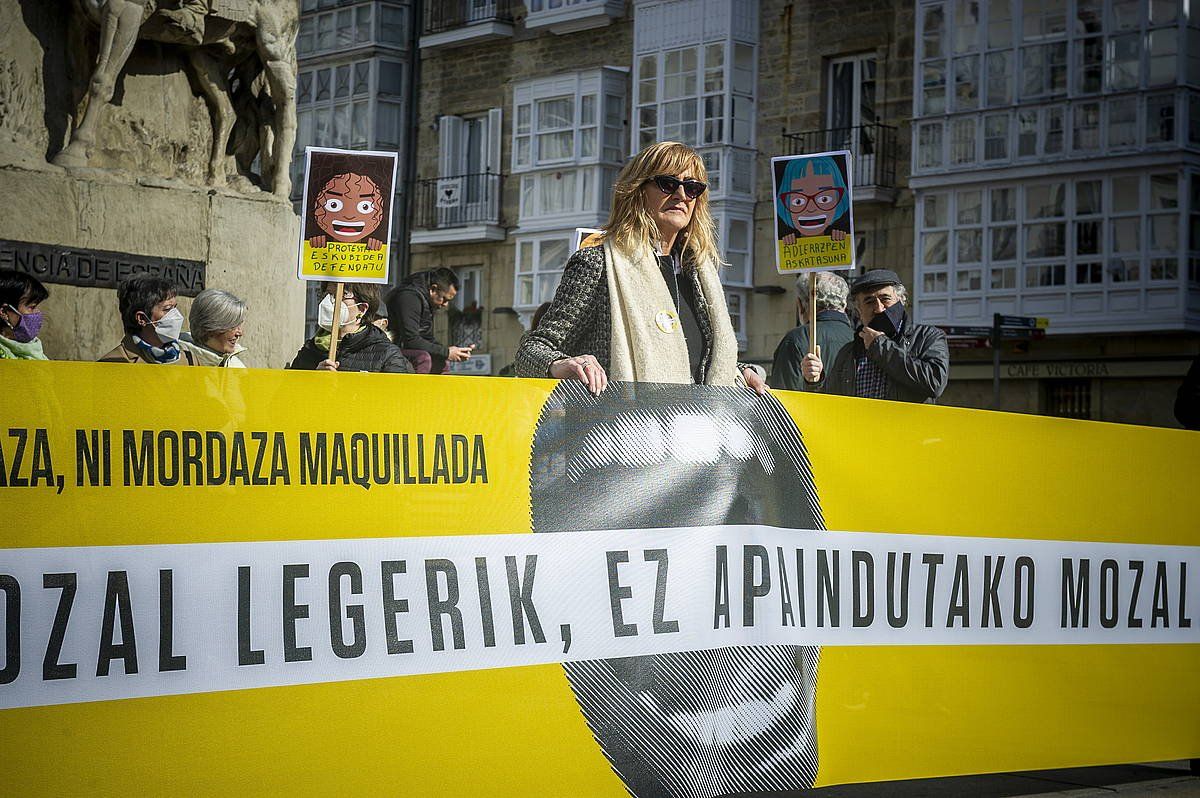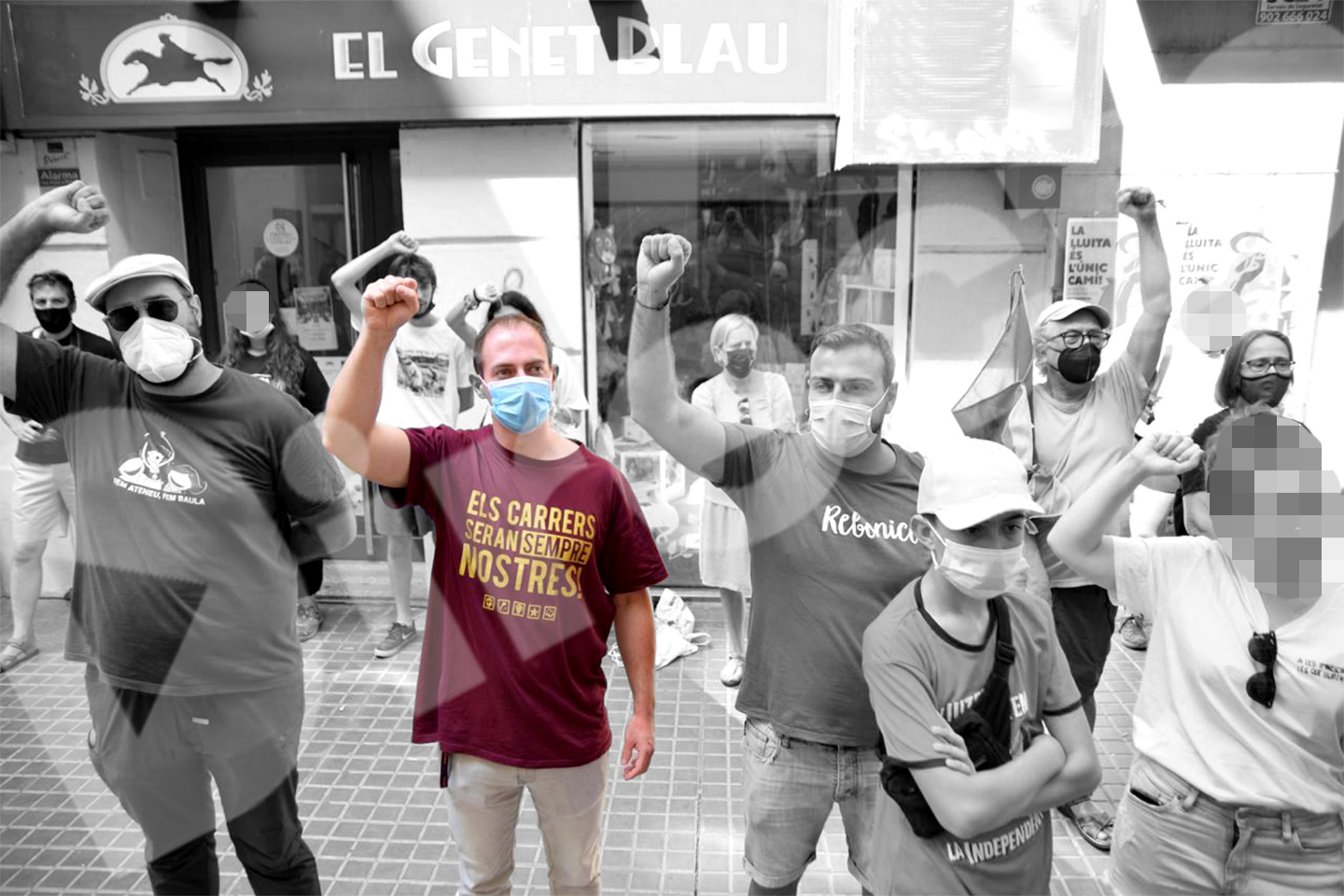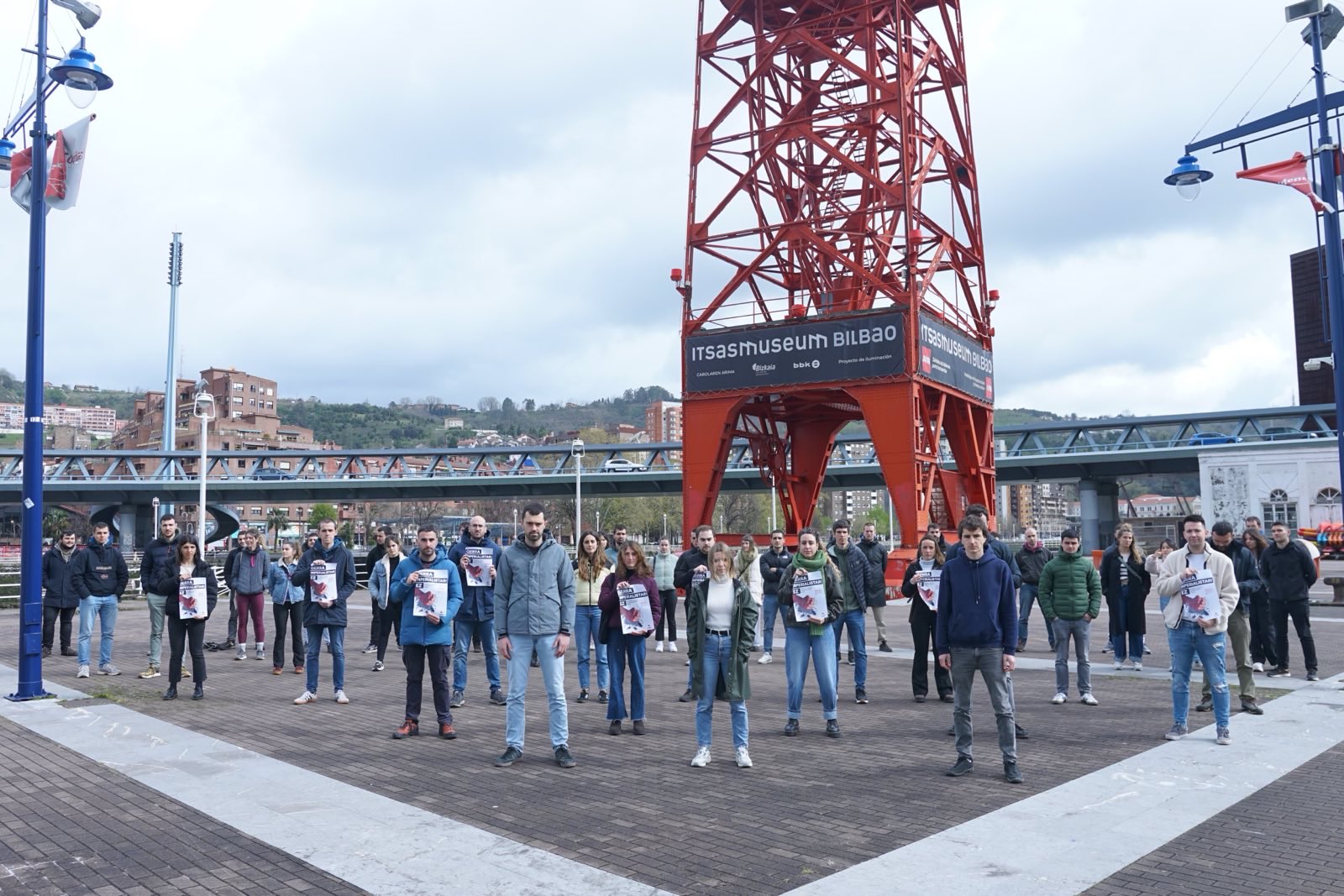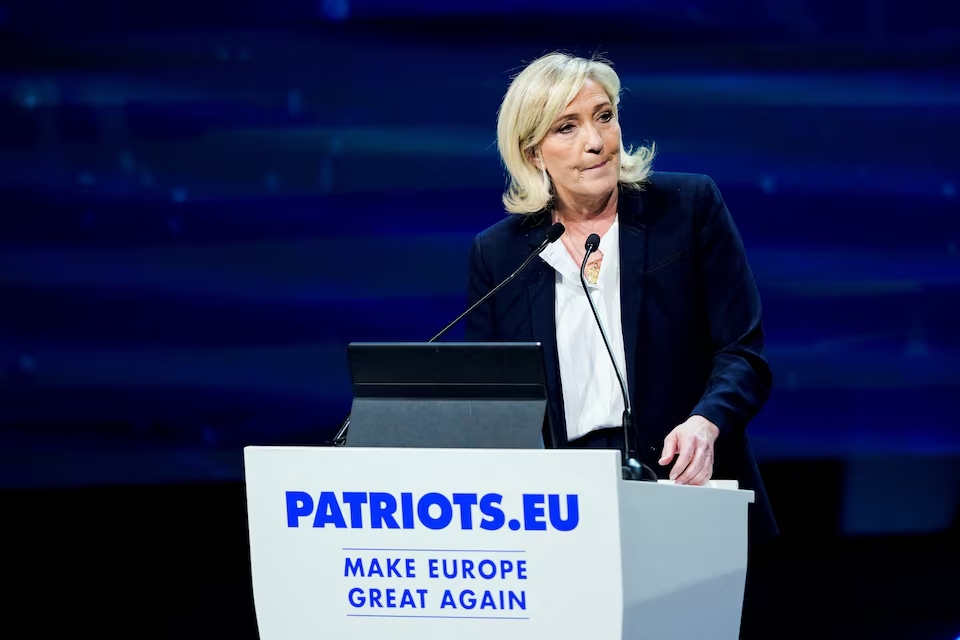"Our goal is the formation of a new government in the CAV"
- Vitoria, 1989. He's a computer engineer. Trained in the Abertzale family. He received the Basque at home and at the ikastola. University studies took him to Bilbao nine years ago. He is a member of Podemos Euskadi. He has committed to Podemos Bilbao for three years. He is the secretary general of the Navarre capital. He has been the coordinator of the electoral campaign for the general elections in Spain at the CAV. In February-March, the party’s congress will be held to elect the secretary-general of the training at the CAV. Lander Martinez has told us that he will not come to that office.
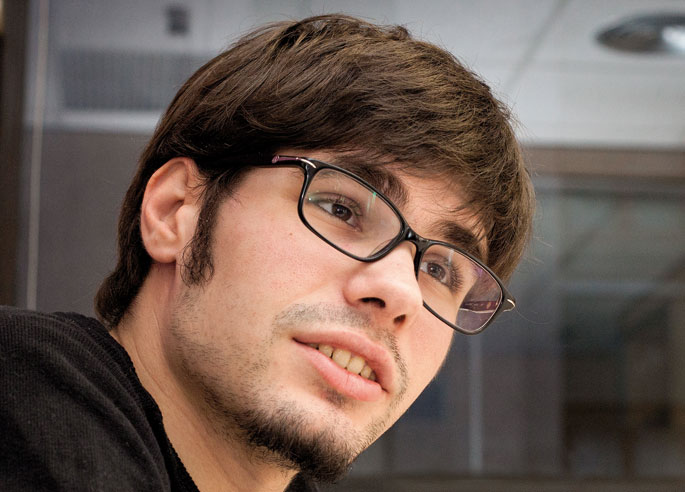
Why in politics?
Politics has always interested me. At home we talked a lot about politics, now I've realized that, so I wasn't aware of it. At Ikastola [Olabide] I worked and fought for the students’ demands. For example, at the ikastolas we did not have the right to strike.
Speaking of the internal organization of Podemos in the CAPV, should we consider you a member of the official sector?
What is the official sector? Those of us who will be presenting to the congress next month have been in the last election campaign. We all agree on the key points of Podemos. At the moment, it is a question of jointly understanding our internal organization. There is no official sector.
In Congress, therefore, there are no difficulties in maintaining the homogeneity of the party.
How homogeneity is also understood. Of course, we can't be homogeneous. But I do not think it is good that there is absolute homogeneity either. Nor do I want to be qualified as an official sector. Not those who work in Bilbao [the deputy for Bizkaia Eduardo Maura and he are close to the party], nor other candidates who will be presented to the general secretariat.
Can you be the secretary-general?
No. Because I don't show up.
What kind of organization do you want in Podemos Euskadi?
I would like to form our party along the lines of what I have seen in the campaign. Despite the fact that in the last three years we have needed some homogeneity in order to shape our direction, much work has been done in the circles of peoples and peoples over the last year. Therefore, to my liking, local groups must be allowed to do their job, that is very important. If we leave the people in their jobs, organizing events and meetings, the groups work very well. We must therefore strengthen our bases, understand that at the moment we are building an organization, it is not a matter of dividing up sectors, of acting against each other, we must assume the heterogeneity to form a party. We can be very plural in the Basque Country. We have to do a piece of work to leave behind the scandals of recent months [resignation of former Secretary General Roberto Uriarte]. We will soon have primaries again, we are preparing the list. We're getting better trained. Fortunately, in all territories we have councillors and Members. Some of them will be on some lists, others on others. It is a great achievement. Once appointed secretary-general, we must all work together towards the Basque elections.
What are your main priorities and objectives?
Our aim is to win the elections to the Basque Parliament and to form a new government. And to achieve this I am clear that in the Basque Country we have to have autonomy to carry out our political work, and at the same time, as an institution throughout the State, we have to maintain relations, not only with the organs of the State, but also with those of other countries, in particular with the other nations, taking into account their specificities. With Podemos del Estado and with those who work in these territories some confluences have materialized. In view of the elections in the Basque Country, we must strengthen an institution that will be imposed on the PNV. We must follow the path we have taken in the last elections, working politics from here, not forgetting that we are a party that is working in the state.
Can EH Bildu be a friend or an enemy in this new time?
We do not regard EH Bildu as an opposing force, we agree on many things, especially on economic and social issues. In local councils and general meetings we work a lot at the same time, we have seen that we can work on a number of issues together. Of course, in the field of peace and standardization, in the problem of violence and in the independence line we have different views. Anyway, for us, it's clear, EH Bildu is a game of change, and we have our hand to work. We are ready to work with all of us to improve the economic and social situation, and certainly the closest party in this regard is EH Bildu.
To be the alternative to the PNV, to form a new government, EH Bildu could be the most voted force.
I don't know. Much remains to be done, it is too early to see us on the stage of this new government. The elections are far away, it takes more time to come to a new situation. Each party has its own difficulties – we are new, EH Bildu is made up of four parties. The forces that make up the coalition must follow their path. It is still a party front, which has to make many decisions on the path of sovereignty. EH Bildu and Podemos can be comrades if each one respects each other's path. We at least respect yours. First, we respect that it is a party that defends the independence of Euskal Herria, and they must respect that we are a party that works throughout the state, understanding and assuming that the Spanish state is plurinational. We must therefore respect each other, but not necessarily to unite the spaces of the two options. We are trying to create new transversalties. In that I include Ezker Anitza-IU, Equo, and all the parties working for change, so that we can make way and generate alternatives to end the hegemony of the PNV. That is the path we want to take in order to achieve that goal.
Are you aware that it's very difficult to govern? Don't you have vertigo to fall into the bureaucracy?
You always have vertigo, but that's what you have to overcome, you have to leave fear behind. We have been in politics for two years and now we have to say loud and clear that we want to take power. Being in opposition and fighting on the street is OK, but now, for example, we have to aspire to win the elections in the Basque Country, because otherwise, change cannot be achieved.
What relationship or syntony do they have with PP, PSE-EE and PNV?
We've only had formal relationships with EH Bildu, also with the PNV, but not much. I work within the municipal Cauca-Ahal dugu group in Bilbao. We have to talk to the groups in these three parties in order to pursue a more progressive policy. We behave quietly, even though those of PP are still very stubborn. For example, there is the case of Arantza Quiroga. Pp has lagged behind what Basque society is demanding, has no value in changing its policy. However, the truth is that everyone, even if each one is different, including EH Bildu, in the Basque Country still does not take us into account, does not consider us as a party created here, as a party that will be long. We especially annoy PP, PSOE and PNV. According to the words of Andoni Ortuzar, the PNV does not recognize us in the political game here, at least not entirely.
Speaking of Can in the State, I have heard some of you that the party should be recast. Among other things, because there will be a duplicate political office on the part of some of its members. What do you think of having a double position?
I do not think it is bad to have a double position, I do not see it wrong, and I think it is good that those colleagues relate to the internal life of the party. I prefer some people to work in the party and others I see fit in the institutions. At the same time, the holding of two seats by some of its members contributes to the development of the party’s work and the institutions, as there must be a connection between the party and the institutions. Of course, I do not want anyone to occupy more than two positions.
And from the refoundation of Podemos what do you say?
So far, the party we have formed has been to go to the elections and make quick decisions. We have realised that this has been very effective in quickly defining the political lines. This year we have autonomous elections in the CAV and until this is possible the best thing is for the party to continue as it is. Once this election cycle is over, we will have to work a lot in countries, in the form of popular movement, we have to go to have more party forms. Is that what it's called to recast? I don't think so. We have a way of working in the councils and in the popular circles, if we work well the party can be strengthened. It is true that after the forthcoming elections there will be a turning point, we will have to strengthen relations with different movements, people and political parties. We have to strengthen the party without leaving the popular movement behind.
Do you prefer to be in the Spanish Government or in the opposition? How is We Can Act?
Preferably, I'd like to be in government. And only if it was possible. I don't think government coalitions are good. At the moment there is no party with an absolute majority, but, despite being a minority in the government, we must try to be in the executive of Patxi López. Of course, right now Podemos’s task is not to create a government, because pp and PSOE are ahead of us, they have to try it first. What happened in Catalonia makes it easier for those who believe in the current model of State to approach a little, to agree on some points (pp, PSOE, Citizens). We do not want the same thing as them in order to reach an agreement, it is not ours. However, Congress is very divided and the elections could be repeated, the fear of repetition is there.
In order to avoid this, would you supplement the Government with the PSOE?
That doesn't depend on me. I wouldn't make that choice. It's not the time.
The new Government of the Generalitat of Catalonia has been established. How do you see the independence process?
The path of the process is unilaterally that of disconnection and the unilateral path is not good for Catalan society, in our opinion. We understand that the Spanish Government has never helped to channel and resolve the problem. The positions have been very much fought: the other has turned a deaf ear to the request of one side, turned a blind eye to what the problem is political and what was happening in Catalonia in Madrid. Despite this, we do not consider it appropriate that the drivers of the process seek a scenario contrary to the other, that is, playing unilaterally is not a good way to carry out the process of disconnection. The main party to conduct the referendum or the right to decide is CDC, the party of cutbacks and corruption. If you want to create a Catalan state, at least, that is to reduce social cuts.
We can have been the first force in the Basque Country, in Catalonia and in Galicia as a whole. What assessment have you made of these results?
The results have shown that our strategy of functioning with local parties is worth, and not only in those countries, but the results have also shown that we form a multi-national state. And it's not just that our state is aged, it's never been real. Unfortunately, they are still following this speech. We have heard from Susana Díaz of the PSOE that “First is the unity of Spain”. How can a message like this be disseminated? The latest elections have once again demonstrated the reality. We think it is possible to create a new state project, whether common or not, but the project has to be how the people want it to be. For our part, there is a will to guarantee the right to decide, the state is plurinational and several points can be agreed. That idea has appeared throughout the state, those who voted for Podemos have understood the message. Two years ago, no one thought that some 5,000,000 citizens would vote for Podemos, who stands for the referendum in Catalonia, and for Podemos who stands for that referendum. Now there is a crowd that defends it. That's one of the keys.
Can we of the peripheral state and Podemos of Spain live or defend Spain in the same way?
Each one has its own characteristics. Surely, in Catalonia some feel Spanish and other Catalans. In Spain, they will feel as normal, but internationality should not be an obstacle for the State to be plurinational. It is a question of everyone being comfortable with their nationality, both in politics and in life, respecting the other nationalities, seeing them as friends and, if the time comes, respecting the project of the other. In other words, whether or not they sit down Spaniards, no one has to obstruct the path of the Catalans, but each has to put his hand to the other to follow his path.
Do you see Pablo Iglesias and Iñigo Errejón firmly for the right to decide?
Yes. I think that's clear across the organization.
Without Churches, is the Podemos project feasible today? Is the strong figure of the leader not dangerous?
Pablo Iglesias has a strong image, but behind him is a big and strong organization. We can be made up of plural and diverse people, and it's mostly made up of young people. Although the figure of the powerful leader appears in the media, he is a spokesman and Pablo Iglesias has his role in front. Their media behavior is part of our party’s task. But, for example, in Bilbao we make our own decisions, we are the spokesmen for our groups.
The writer Juan Bautista Bilbao Batxi worked in a boat and sent the chronicles of his travels to the newspaper Euzkadi. Thanks to this, we have interesting chronicles in Basque from around the world from the beginning of the 20th century. In June 1915, he made his stop in... [+]









